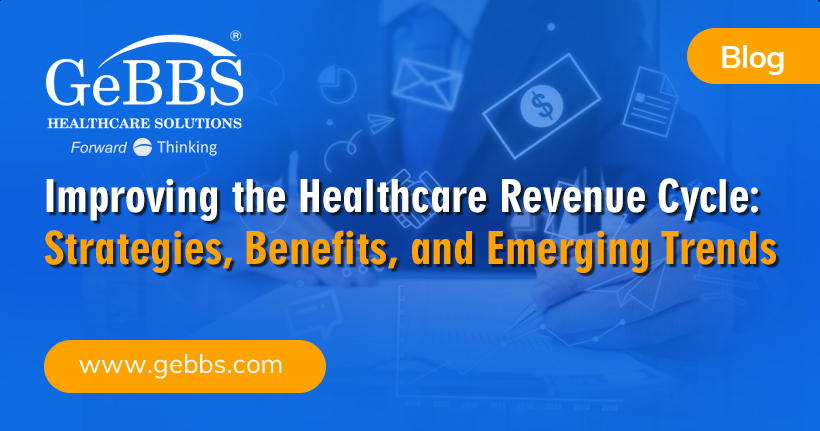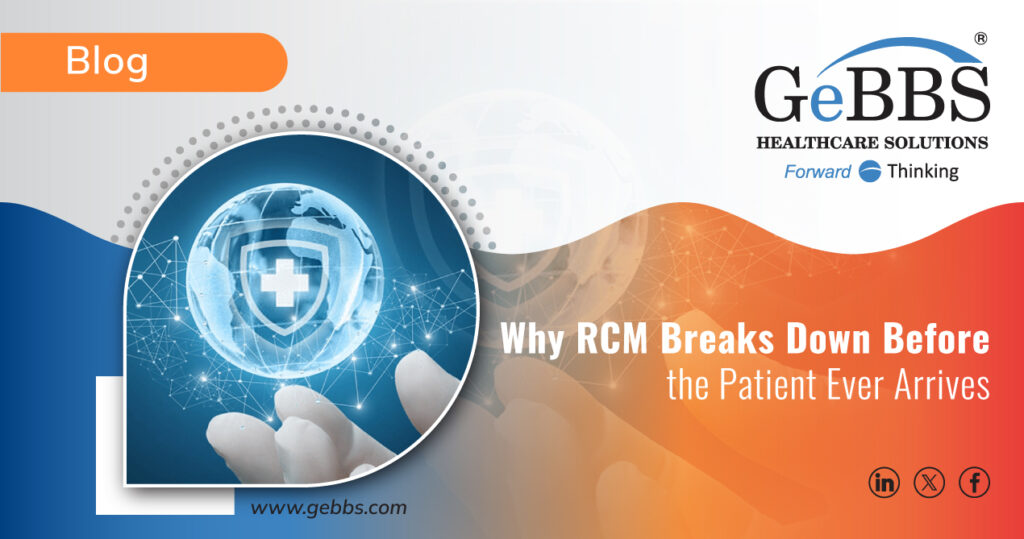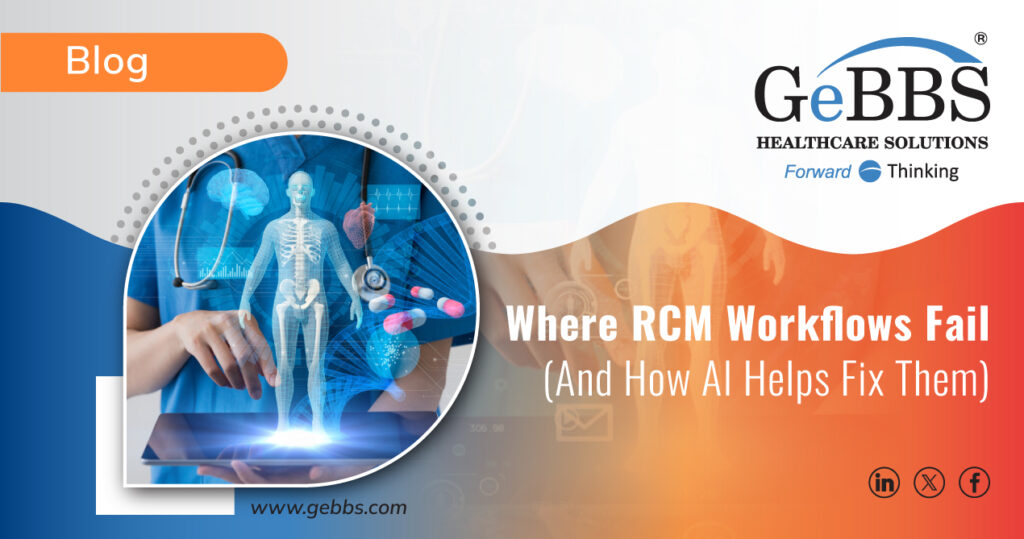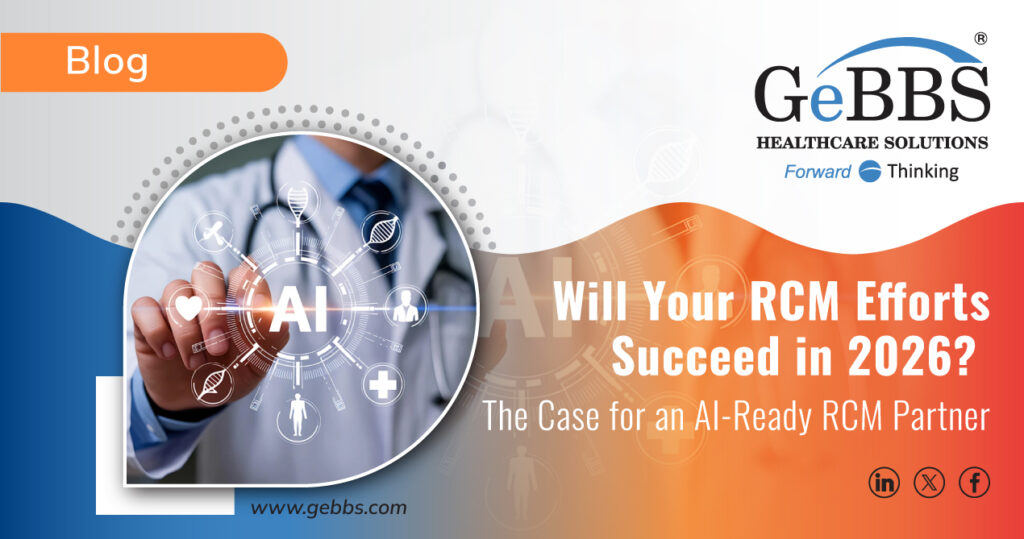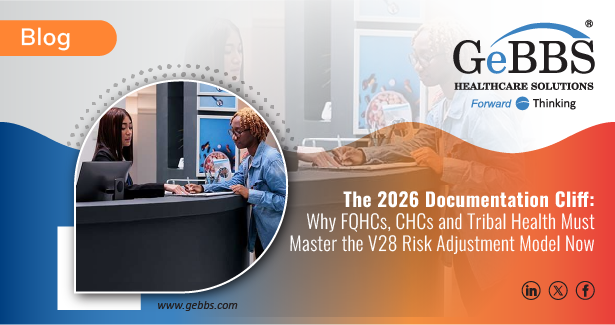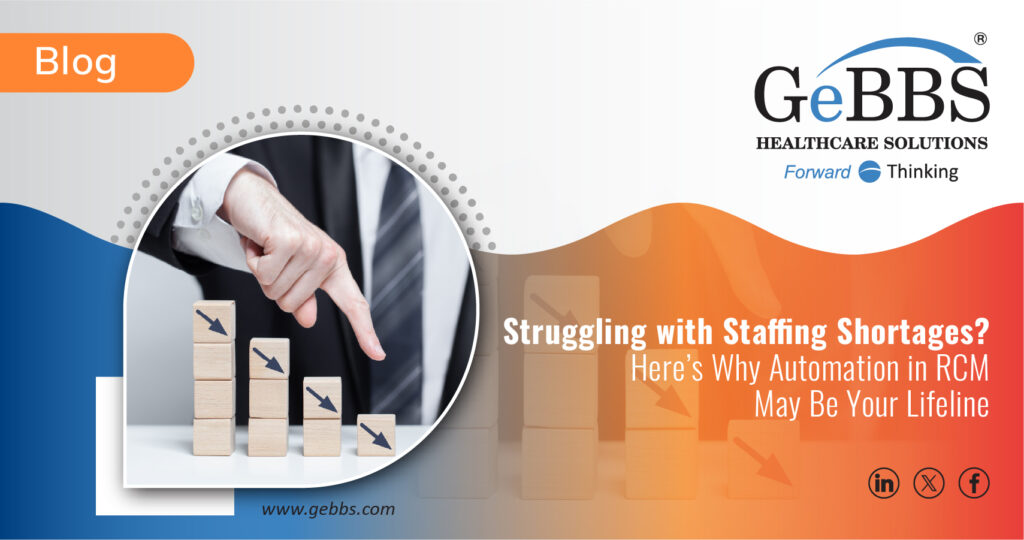Efficient Revenue Cycle Management (RCM) directly impacts the financial health of healthcare organizations. Key strategies include enhancing patient access, ensuring medical coding accuracy, streamlining denial management, leveraging AI automation, and forming strategic partnerships. Optimizing RCM improves cash flow, reduces denials, enhances compliance, and boosts patient satisfaction, positioning healthcare organizations for sustainable financial success.
Why Revenue Cycle Management Is a Strategic Imperative
Healthcare financial pressures have intensified in recent years, with U.S. hospitals facing significant margin erosion. As of 2024, initial claim denial rates rose to nearly 14%, costing hospitals approximately $20 billion annually. With nearly half of these denials preventable, organizations have a tangible opportunity to improve their financial outcomes by refining their revenue cycle processes. In this context, effective Revenue Cycle Management (RCM) emerges not just as an operational necessity, but a strategic imperative for CEOs, CMOs, CFOs, and CIOs in healthcare
Essential Steps for Enhancing Revenue Cycle Management
1. Improve Front-End Patient Access
Front-end processes significantly influence downstream revenue cycle success:
- Accurate Patient Registration: Capturing precise patient and insurance data at the start reduces avoidable claim rejections significantly.
- Automated Insurance Verification: Real-time eligibility checks prior to patient visits minimize denials related to insurance coverage.
- Prior Authorizations: With new CMS regulations requiring faster authorizations by 2026 (standard: 7 days, urgent: 72 hours)1, organizations must streamline their authorization processes proactively.
Executive takeaway: Investing in robust patient access processes reduces administrative burden and enhances downstream collections.
2. Prioritize Medical Coding Accuracy
Medical coding is central to accurate billing and compliance:
- Certified Professional Coders: Employing or outsourcing to certified medical coding experts ensures accuracy, minimizing costly coding errors and underbilling.
- AI and Automation: Advanced technologies like Computer-Assisted Coding (CAC) and autonomous coding enhance accuracy and coder productivity by up to 50%2.
- Clinical Documentation Improvement (CDI): Training clinical staff to document thoroughly supports accurate coding and full reimbursement.
Executive takeaway: Accurate coding directly improves revenue capture and compliance, protecting margins and reducing audit risk.
3. Streamline Claims Submission and Denial Management
Efficient claims processing directly affects cash flow and reduces denial-related revenue leakage:
- Claims Scrubbing: Pre-submission claims edits ensure high first-pass acceptance rates.
- Analytics-Driven Denial Management: Advanced analytics identify denial patterns, allowing proactive adjustments to reduce future occurrences. Hospitals that systematically address denials can significantly increase net collections.
- Rapid Response: Timely management and appeals of denials recover substantial revenue otherwise lost through administrative neglect.
Executive takeaway: Denial management, backed by robust analytics, directly boosts revenue recovery and minimizes financial waste.
4. Accelerate Collections and Patient Payments
Efficient backend collections improve liquidity and reduce bad debt:
- Automated Payment Posting: Digitizing payment posting reduces errors, accelerates cash flow, and frees staff for high-value tasks.
- Patient Payment Portals: User-friendly digital platforms improve patient payment rates, enhance satisfaction, and reduce write-offs.
- Flexible Payment Options: Offering transparent billing statements and personalized payment plans increases patient compliance and financial engagement.
Executive takeaway: Patient-centric billing solutions not only enhance financial outcomes but also patient satisfaction—critical in competitive healthcare markets.
5. Leverage RCM Technology and Strategic Partnerships
Technology and external partnerships significantly enhance RCM efficiency:
- Strategic RCM Outsourcing: Partnering with specialized RCM providers like GeBBS Healthcare Solutions delivers targeted improvements in medical coding, billing, and denial management efficiency.
- Artificial Intelligence (AI): Over 70% of healthcare organizations are implementing generative AI tools2, enhancing RCM efficiency and accuracy. AI-powered systems improve denial prediction, automate routine tasks, and streamline operations, drastically reducing administrative overhead.
Executive takeaway: Strategic RCM partnerships and intelligent automation provide scalability, efficiency, and financial resilience.
Key Benefits of Optimized Revenue Cycle Management
Optimizing RCM processes delivers measurable improvements to healthcare organizations:
- Enhanced Cash Flow: Reduced days in accounts receivable (A/R) improve organizational liquidity.
- Reduced Revenue Leakage: Better denial prevention and accurate coding directly increase net revenue.
- Lower Operational Costs: Automation and streamlined processes significantly lower administrative overhead. According to CAQH, automating key RCM processes could save the industry over $16 billion annually3.
- Improved Compliance: Accurate billing and documentation reduce audit risk, ensuring regulatory compliance.
- Increased Patient Satisfaction: Simplified billing improves patient experience, enhancing patient retention and organizational reputation.
Emerging Trends and Future Opportunities in RCM
Increased AI and Automation Adoption
Healthcare organizations are swiftly adopting AI solutions to enhance RCM efficiency. As of 2024, 46% of hospitals had already integrated AI into their RCM operations, a figure projected to grow rapidly4. AI-driven denial management, predictive analytics, and automated patient engagement tools represent transformative shifts within the industry.
Shift to Patient-Centric Financial Experiences
Regulatory mandates and patient demand for transparency are reshaping billing practices. Upcoming federal mandates will require clearer patient billing standards, pushing healthcare providers toward simplified and consumer-friendly financial experiences. Providers who lead in patient financial transparency will likely see higher satisfaction rates and stronger financial performance.
Transition to Value-Based Care Models
Value-based care arrangements are expected to double by 20275, as organizations are compelled to adopt more complex reimbursement models. Revenue cycles must evolve, integrating advanced analytics to manage capitated payments, bundled payments, and performance-based incentives. Those who adapt early will have a significant advantage in navigating new payment structures.
Regulatory and Coding Updates
Ongoing regulatory changes, including potential adoption of ICD-11, adjustments in CMS billing guidelines, and stricter prior authorization rules, require continuous adaptation. Proactive compliance teams will be essential to avoiding costly penalties and disruptions to cash flow.
Integration Across Clinical and Operational Systems
Increasingly, the future RCM model involves deeper integration between clinical care and revenue cycle processes. Real-time documentation, coding assistance embedded in EHRs, and clinical decision support tools will become standard, linking care quality and financial health seamlessly.
Conclusion: Positioning for Sustainable Financial Success
The healthcare revenue cycle is evolving rapidly, influenced by regulatory pressures, technological advancements, and changing reimbursement models. For CEOs, CMOs, CFOs, and CIOs, the revenue cycle is no longer merely an administrative function but a critical strategic asset. Organizations that proactively optimize their revenue cycle through enhanced patient access processes, medical coding accuracy, streamlined denial management, patient-friendly billing solutions, and strategic RCM partnerships will achieve greater financial stability, compliance, and competitive advantage. Investing strategically in revenue cycle excellence today will pay significant dividends tomorrow, empowering healthcare providers to continue delivering high-quality patient care in an increasingly challenging financial landscape.
Footnotes
- Centers for Medicare & Medicaid Services. “CMS Interoperability and Prior Authorization Final Rule.” (2024) cms.gov
- McKinsey & Company. “Generative AI in Healthcare: Adoption Trends.” (2024) mckinsey.com
- CAQH Index. “Automation in Healthcare Revenue Cycle Management.” (2024) caqh.org
- HealthLeaders Media. “AI in Revenue Cycle Management.” (2024) healthleadersmedia.com
- McKinsey & Company. “What to Expect in US Healthcare 2024 and Beyond.” (2024) mckinsey.com
